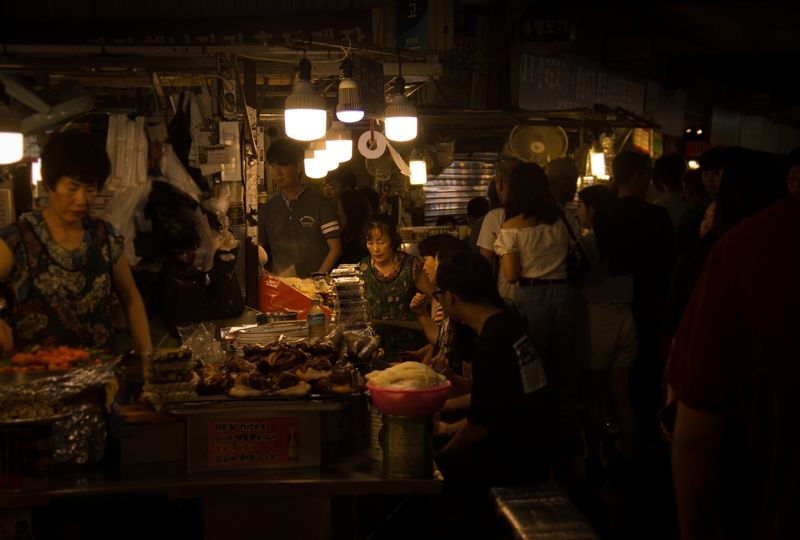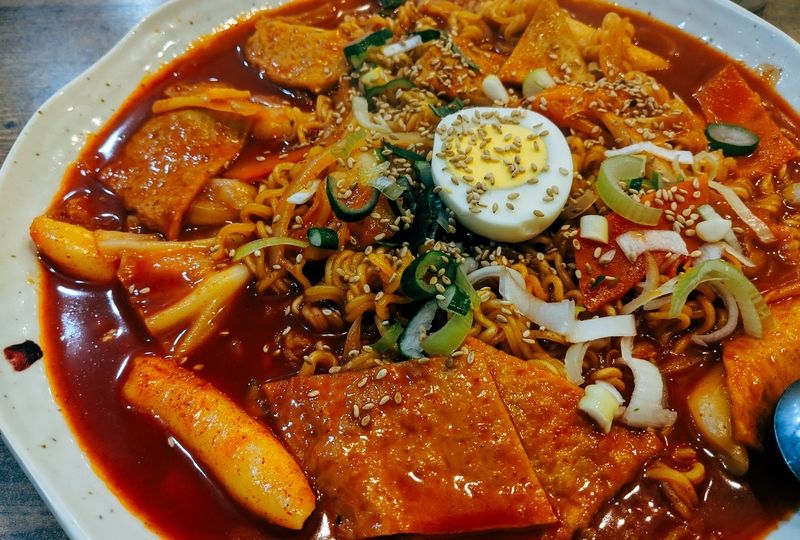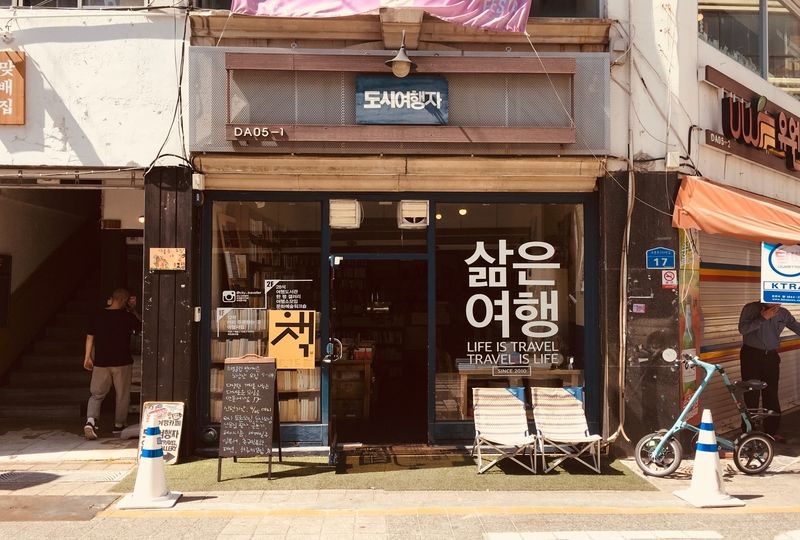Top 20 Korean Slang Words to Speak Like a Native

Have you tried studying Korean from a textbook, but realize that it just doesn’t sound natural? Do you want to speak Korean like a native speaker? If you really want to impress your Korean friends, it’s time to close your boring old textbook and learn some Korean slang.
In order to learn Korean or any language successfully, you need to study more than just grammar. Sure, grammar lessons are important in academic settings, but you won’t hear this kind of formal Korean in the streets of Seoul or Busan, two of Korea's hottest cities.
Instead, to better master a second language, you need to practice using it in everyday situations. And in everyday life, people don’t always talk to one another using formal grammar. That would sound weirdly outdated and ornate. Groups of friends and acquaintances tend to use a playful form of spoken language, or slang.
A variation of the standard language, slang usually breaks traditional grammar and usage rules. One way to communicate more like a native speaker is by learning popular Korean slang. Sometimes, informal slang becomes so widely used that it is even adopted into the standard language variation.

Why learn slang?
Not only will slang improve your speaking skills, but it will also clue you in on what is trending in popular culture in Korea. Slang helps groups of people form an identity, whether it’s through age, city, job, or hobby; and learning it will help you to better understand the hearts of Korean people.
Either you know the popular slang of a language- and you’re in- or you’re just not part of the group.
So, are you ready to be in and speak more like a native Korean? Let’s learn some slang.

Korean Slang
When speaking informally, it’s common for Korean speakers to omit subject and object marking particles and to shorten words. These days, it is also trendy to abbreviate words even further. Koreans, especially Korean youth, often combine parts of words to express what they want to say in a shorter, cuter fashion. The meaning of this abbreviated slang is therefore easy to understand.
This article will include slang in Romanized Korean, as well as native Hangul, the Korean writing system. Although it may seem daunting, Hangul is actually quite simple to learn to read in a short period of time.

Food and Beverages
One of the most important parts of every culture is food. In Korea, abbreviations are often used to refer to the perfect food and alcohol combination.
As you will learn, once you get the hang of it, it's really fun and easy to create and use Korean slang words to talk about food. Your friends will understand what you want to eat or drink, even if you make up a strange combination!
-
Pi-Mek (피맥)
The Korean word for beer is meak-ju (맥주). So, Korean speakers create new slang words by combining the first syllable of a food item + mek. If you really enjoy pizza and beer, you would invite your friends to have some pi-mek. -
Chi-mek (치맥)
If you are more of a fried chicken eater (like me), you would go out for some famous Korean chi-mek. Yum! -
So-mek (소맥)
The same kind of word combination also applies to beverages. A popular beer cocktail and slang word in Korea is so-mek, which is a mixture of soju and beer. -
So-col (소콜)
If you prefer a soft drink to beer, you could try soju with cola and order so-col. -
JMT
Also related to food, you can say JMT when you think something is really delicious. This new slang term, however, is a little rude, and should only be used among friends.
J comes from a Korean explicative, jon-na, which has a similar meaning to very or extremely. M comes from mash, or taste; and T from a particle used for emphasis, tang. So if something is really f****** delicious, you can say it is JMT. -
Wifi (와이파이)
No, in this case, I'm not talking about internet connection! You can say wifi when you want to cheers someone who is sitting far away from you. Just raise your glass, and wifi!

Talking about People
In the same way Koreans use slang word for food, they also use abbreviations and slang to talk about people and relationships.
-
Nam-chin (남친)
Dating and relationships are really important in Korea, and couples often use cute language and pet names. In Korean slang, you can say nam-chin for boyfriend. This is a cuter, shortened form of the word boyfriend. -
Yeo-chin (여친)
Like the example above, yeo-chin is a short way to say girlfriend. -
Um-chin-dal (엄친딸)
Unfortunately, Korea is a highly competitive society. Mothers love to compare their children’s accomplishments. Um-chin-dal is an acronym used to mean mother's friend's daughter. In Korean slang, these words are used to describe the perfect child- good grades, a good job- that your parents want you to be. -
Um-chin-ah (엄친아)
Um-chin-ah means my mom's friend's son. It's used in the same way as the example above. -
In-sa (인싸)
In-sa is a slang word used to describe an insider, or a cool kid. If you can remember all of these Korean slang words, you will definitely be known as an in-sa! -
Moon-jin (문찐)
Someone who is moon-jin is the exact opposite of an in-sa. A moon-jin person can't keep up with pop culture and current trends. By learning this slang, you won't be a moon-jin! -
Ba-ram-dun-gi (바람둥이)
This slang word is someone you definitely don't want to date! Ba-ram-dun-gi is slang for a playboy or someone who dates around. Ba-ram comes from the Korean word for wind, so if you date a ba-ram-dun-gi, he will definitely float away with the wind! -
Nun-chi (눈치)
Nun-chi is something really sought after! Someone who has nun-chi has charisma. They can read the situation and say the right thing. Someone who doesn't have nun-chi is someone a little clumsy or socially awkward. Are you a nun-chi person? Or do you lack nun-chi?

Feelings and Exclamations
-
No-jem (노잼)
The phrase no-jem has nothing to do with your favorite fruit flavored spread. The firs syllable means no and the second syllable, jem, is short for the Korean word for fun. So together, no-jem is used to describe something that is not fun or not funny.
Doing homework is no-jem! -
Dae-bak (대박)
On the other hand, dae-bak is slang used to express excitement or to say that something is cool. If something amazing just happened, use this phrase. For example if your favorite team won the game, you can loudly exclaim dae-bak! -
Haeg (핵)
You can add emphasis and say something is even MORE boring or even cooler by adding the syllable haeg to the beginning of the word like a prefix. Haeg actually means “nucleaus,” but in slang it can be used as an adjective to mean extremely. So, if you’re really bored, you can say that something is haeg-no-jem. And if something is really cool, you can say that it is haeg-dae-bak! -
Aah-sah (아싸)
Similar to the English, “yay!”, you can say aah-sah to express excitement or joy for something. Often people use this if they win a game or a bet. -
Dang-geun (당근)
Dang-geun actually means carrot. However, in slang, Koreans use this to say "of course!" This slang came about because dang-geun sounds similar to the standard word for of course. So, can you learn Korean slang? Dang-geun! -
Oem-ma-ya! (엄마야)
Oem-ma-ya actually means mom or mother; however, in slang, Koreans use this to say oh my god. When something shocking or surprising happens, you too can say oh mother, or oem-ma-ya!

Bonus Expressions
Of course, one of the best things about slang is that it's always evolving. Some slang dies out, and new slang is made up. For that reason, we can't just stick to 20 words. Here are even more examples of Korean slang to help you sound like a native speaker.
-
Man-leb (만렙)
Of course, due to the popularity of computer games in Korea, some slang dervies from gamers. The slang word man-leb roughly means full level. Imagine playing a strategy game like World of Warcraft so well that you meet the maximum level.
Similarly, you can use man-leb as an adjective to say someone is so good at something, they’ve reached the maximum level. -
Al-ba (알바)
An al-ba is a part time job. It comes from the shortened word in Korean, and it actually can be traced to the German word for work or labor. A lot of university students are so busy between homework and al-ba.

Have Fun with Korean Slang
Learning and practicing Korean slang words will help you not only speak like a native Korean, but it will help you better understand and improve your Korean listening skills. After all, slang is composed of trendy or cool language. Once you are aware of it, you will hear it in the vibrant streets of the big city, on the most popular Korean dramas, and in your favorite BTS lyrics.
If speaking Korean aloud seems challenging to you, you can practice with friends or even with an online tutor. Speechling is a one-on-one language tutoring platform where users are given personal attention from native speakers. With the help of your Korean coach, you'll be using slang in no time! You're an in-sa now!